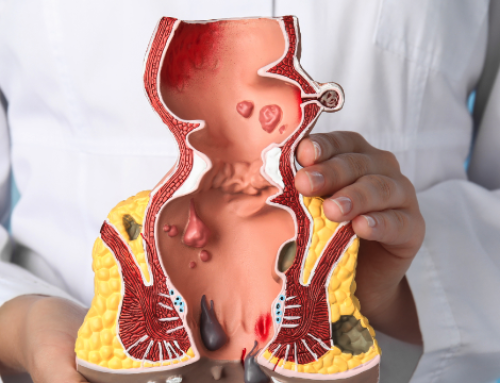
Did you know that April is Irritable Bowel Syndrome (IBS) Awareness Month? I wanted to take a moment to talk about this condition and shed some light on its symptoms, causes, and treatment options.
What causes Irritable Bowel Syndrome?
While the exact cause of IBS is unknown, there are several factors that can contribute to it, such as:
- Abnormalities in the muscles or nerves of the intestines
- Inflammation in the intestines
- Changes in the gut microbiome
- Food intolerances or sensitivities
- Genetic or environmental susceptibility
Thankfully, there are ways to manage and improve the quality of life for those who struggle with IBS. Some options include dietary changes, medications, stress management techniques, and therapy.
What are the symptoms?
The symptoms of IBS can vary from person to person, but some of the most common ones include:
- Abdominal pain and cramping
- Diarrhea or constipation (or alternating between the two)
- Bloating and gas
- Mucus in the stool
- Feeling like you can’t completely empty your bowels
- Nausea
It can be incredibly challenging and embarrassing to experience the symptoms of IBS. They may make navigation of social situations uncomfortable and cause anxiety at the thought of leaving the house. It is important to remember that there should be no shame in seeking help or support to manage and treat these symptoms to alleviate any inconvenience they cause.
What helps manage and treat the symptoms?
While there is no cure for IBS, there are some treatment options available to help manage the symptoms. In addition to seeking help and support, treatment can include:
- Dietary changes such as avoiding foods that trigger symptoms, staying hydrated by drinking plenty of water, and increasing fiber intake
- Regular exercise routines
- Stress management activities like yoga, meditation, or deep breathing
- Keeping a food diary to track any potential triggers or patterns in symptoms
- Cognitive behavioral therapy (CBT) to help change negative thought patterns and behaviors
- Medications such as antispasmodics to help reduce muscle contractions in the intestines, laxatives for constipation, and anti-diarrheal medication for diarrhea
Remember, while managing IBS is a personal journey, and what works for one person may not work for another, it is important to work with a healthcare provider to determine the best treatment plan. With patience, experimentation, and a support system, it is possible to manage the symptoms and improve your quality of life with IBS.
Is it common to struggle with Irritable Bowel Syndrome?
If you or someone you know experiences abdominal pain or cramping, bloating and gas, diarrhea or constipation (or alternating between the two), or any other symptoms, it is important to know you are not alone. IBS affects around 10-15% of the population, so it is more common than you would think.
Living with IBS can be challenging, both physically and emotionally. Symptoms may be unpredictable and disruptive, making it difficult to plan activities or social events. In addition to physical discomfort, people with IBS may also experience anxiety, depression, or other mental health issues. It’s important to remember that seeking support from healthcare professionals, family, and friends can make a big difference in managing the condition.
As always, if you are experiencing any symptoms of IBS, don’t hesitate to speak with a healthcare provider to get a proper diagnosis and treatment plan. Let’s work together to raise awareness about Irritable Bowel Syndrome and support those who live with it!
If you are local and looking for additional support and a treatment plan, please consider making an appointment with me.




